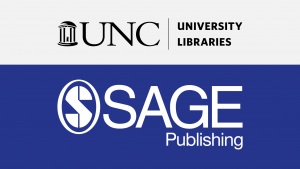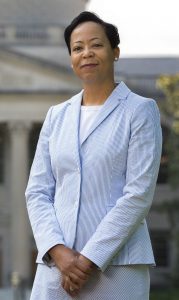Sustainable Scholarship at Carolina
Sustainable scholarship discussions in January and February 2020
Please join representatives from the University Libraries for a conversation about the cost of scholarly information and the implications for the University of North Carolina at Chapel Hill.
RSVP requested:
- Tuesday, January 21, 2020 – 10:00 a.m. – 11:30 a.m. in 214 Davis Library
- Tuesday, February 11, 2020 – 10:00 a.m. – 11:30 a.m. in 215 Health Sciences Library
- Wednesday, February 19, 2020 – 2:00 p.m. – 3:30 p.m. in 214 Davis Library
- Thursday February 20, 2020 – 2:00 p.m. – 3:30 p.m. in 215 Health Sciences Library
In February 2019, the University of California cancelled its contract with Elsevier due to unacceptable license terms and subscription costs. Elsevier is the world’s largest publisher of scholarly journals. The terms by which it sells content to universities have become unsustainable for most institutions, including Carolina, which is currently in negotiation with Elsevier.
This conversation will provide an opportunity for library administrators to share information about the costs of scholarly information at UNC-Chapel Hill and to hear from members of the Carolina community about needs, questions and concerns.
Suggested background reading:
- Update on Elsevier negotiations from University Librarian Elaine Westbrooks
- The Real Cost of Knowledge (The Atlantic, March 4, 2019)
- Unsustainable Scholarship: How Private Companies Control Research in Higher Education (DTH, September 18, 2019)
- University Librarian Elaine Westbrooks is on a mission to open Carolina’s research to all (The Well, October 11, 2019)
- UNC Faculty Council Resolution 2019-8, “On Containing the Costs of Published Research”
Sustainable scholarship discussions on Oct. 31, Nov. 6 and Nov. 12
Earlier this year, the University of California cancelled its contract with Elsevier, the world’s largest publisher of scholarly journals, due to unacceptable license terms and subscription costs. Carolina’s University Libraries is now in renewal negotiations with Elsevier, seeking an affordable and sustainable agreement that is consistent with both Faculty Council Resolution 2019-8, “On Containing the Costs of Published Research,” and the University’s open access policy.
Learn more about these issues at one of three Library-sponsored town halls (RSVP requested):
- Thursday, October 31. 9 am. – 11 a.m. 214 Davis Library. RSVP
- Wednesday, November 6. 11:30 a.m. – 1:30 p.m. 214 Davis Library. RSVP
- Tuesday, November 12. Noon – 2 p.m. 214 Davis Library. RSVP
Suggested background reading:
- Statement from University Librarian Elaine Westbrooks on the UC System’s Termination of Elsevier Subscriptions
- The Real Cost of Knowledge (The Atlantic, March 4, 2019)
- UNC Faculty Council Resolution 2019-8, “On Containing the Costs of Published Research”
- Unsustainable Scholarship: How Private Companies Control Research in Higher Education (DTH, September 18, 2019)
- University Librarian Elaine Westbrooks is on a mission to open Carolina’s research to all (The Well, October 11, 2019)
UNC-Chapel Hill Libraries to debut open access pilot with SAGE Publishing
The University Libraries and SAGE Publishing will enter into a pilot agreement enabling researchers at the University of North Carolina at Chapel Hill to publish open access articles in SAGE journals at no cost to the researcher.
Under the agreement, part of the subscription fees that the Library will pay for SAGE content beginning in 2020 will cover the costs of open access publishing for a number of UNC-Chapel Hill authors in SAGE publications. This comes at no additional cost to the Library and will preserve access to all content that the Library currently licenses from SAGE.
“We want to make it as easy as possible for Carolina researchers to publish open access,” said Elaine L. Westbrooks, vice provost for University Libraries and University librarian. “This is also part of our strategy to forge new channels that will make published research as open and accessible as possible.”
SPARC, a coalition that promotes open access publishing, defines open access as “the free, immediate, online availability of research articles coupled with the rights to use these articles fully in the digital environment.” Such uses include reading, downloading, linking, searching, printing and citing.
Articles covered by this agreement will be fully open and will also undergo the same peer review and editing process as other scholarly articles from SAGE.
“Researchers write to be read,” said Westbrooks. “At Carolina, we have scholars doing amazing work that can change the world and better the human condition. When they publish open access, they reach the broadest possible audience and have the greatest impact.”
Westbrooks said she is especially interested in supporting junior faculty members and graduate students — the emerging researchers for whom open access charges are often out of reach.
The pilot agreement will also allow Carolina-affiliated SAGE authors to deposit copies of their articles in the Carolina Digital Repository. The repository is an open access home that the Library operates to preserve and share work produced at the University.
“For a public university committed to advancing knowledge and bettering the human condition, promoting open access is core to our values” said Westbrooks. “Making more work open is the right thing to do.”
When public scholarship hits the paywall
By Elaine Westbrooks, Vice Provost for University Libraries and University Librarian at the University of North Carolina at Chapel Hill

As the nation’s first public university, Carolina’s tradition of public service is woven into the very fabric of the University. I am proud to serve an institution that proudly declares itself to be “of the public and for the public.” I see that commitment play out every single day as I interact with scholars who are committed to bettering the lives of North Carolinians and to making discoveries that will change the world.
So, it is ironic that many of these scholars are locked into a publishing ecosystem that is about as far as one can get from serving the public good. This is the case not only at Carolina but at every major research institution in the country.
To understand why this is so, let’s look at what is known as the “scholarly publishing cycle.” As we saw in my last post, publishing in scholarly journals to which libraries subscribe is the way that scholars share knowledge with one another—and have done so for hundreds of years.
In addition to conducting the research itself, faculty members volunteer their labor as journal editors, editorial board members, and peer reviewers. They do this not only to advance knowledge, but also because an entire system of academic advancement and tenure grew up around the idea that faculty ought to publish their findings and should provide the services of editing and peer review that make it possible for other faculty members also to publish this way.
When scholars and scholarly societies produced their own journals, this process made sense. But as large for-profit publishers stepped into the equation as the primary purveyors of academic journals, the costs and the benefits have fallen out of balance.
To put it plainly, private publishers are leaning on taxpayers and universities to foot the bill for research and for the cost of its publication. Yet, if you are a member of the taxpaying public, much of this original research will be unavailable to you, hidden behind subscription paywalls.
The only entity in all of this to turn a profit is the publisher—and those profits can be significant. The world’s largest publisher of scientific information is Elsevier. In 2018, Elsevier’s parent company, RELX, posted revenues of U.S. $9.8 billion, of which around 40% came from Elsevier. Carolina’s contribution to that total was nearly $2.5 million in subscription fees.
As publishing has consolidated, fewer and fewer publishers serve as the gateway to the world’s research production. In fact, by 2013, just five publishers had come to control more than 50% of all academic published output. That’s a situation that’s never good for the consumer, in any industry.
As a public institution so deeply committed to the public good and the betterment of all North Carolinians, I believe UNC-Chapel Hill has a special responsibility to raise awareness about the cost of research publications, and to turn the tide in favor of creative solutions that make information more affordable, sustainable, open, and transparent.
University Librarian Elaine Westbrooks is on a mission to open Carolina’s research to all
This interview was originally published October 11, 2019, on The Well, the University’s news source for faculty and staff.

For decades, universities have been part of an academic publishing ecosystem in which their researchers submit studies and scholarly papers to peer-reviewed academic journals. Publishers do not pay scholars for conducting the research or for reviewing the work of their peers. And when journals do publish research, the content is generally restricted to only its subscribers. University libraries subscribe to thousands of journals, paying annual fees of as much as $40,000 per journal, so that faculty, staff and students can access the research produced on their campus.
“There’s really no other industry where the creator and the consumer are one and the same, but the final product is apart from the creator and the consumer,” said University Librarian Elaine Westbrooks. “That cycle has made publishers quite wealthy.”
In an era of rising costs and declining revenues, the traditional model of academic publishing is unsustainable for universities, Westbrooks said. Now, Carolina is among the academic institutions seeking to challenge the status quo and innovate for the public good.
The University’s contract with Elsevier, one of the big five academic publishers who control the production of scholarly journals, expires Dec. 31. Other publisher agreements will soon follow, and earlier this year Westbrooks indicated that any new contracts will be closely scrutinized. Over the last several months, she and other librarians have met with dozens of groups across campus to learn more about how they want to access information.
Upcoming town halls allow the campus community to share input. All three town halls will be in Room 214, Davis Library and are accepting registrations:

The Well recently sat down with Westbrooks to talk about the future of academic publishing and how it will impact the University’s mission of research, teaching and service.
Q: What is the message you want to send to University faculty about the current situation?
A: I hope our scholars realize that this is something that has to be done. This is the tipping point for us. The money is not there to support the status quo. I’ve heard from many faculty who agree that that we need to change this system that we have.
The current model is unsustainable for universities and is inconsistent with the values of a public university. We’re “of the public, for the public,” designed to serve the state and the citizens of the state. So, I feel as though we have no choice but to transform this system to critique what we’ve done. That critique is going to have some consequences, which I think are good.
Q: What are you looking for in a new contract with Elsevier?
A: Elsevier is the world’s biggest publisher of scientific information, and we have a multimillion-dollar contract with them. Given its relevance to science, technology and health care, it is at the top of our list. The subscription cost of journals is rising at a rate three to four times inflation. We’re negotiating with Elsevier to find out what kind of license we can sign that will be affordable, sustainable, promotes open access and is transparent. Those are the four values that we have set. We’re at a tipping point where it’s just not possible to keep doing business as usual.
Q: What’s “business as usual” for subscriptions?
A: It’s like cable TV. They’d combine many journals into a single big package and we would just say, “Yes, we’ll take that package.” At the time, it was advantageous and nondisclosure agreements kept us from comparing deals with other libraries. Now we have to be more selective. It’s great to have all these titles, but if we only really need the premium titles, then it’s not a good use of funds. We’re really focused on the quality, not the quantity.
Q: What changes do you foresee in the way that our community consumes research?
A: What really matters to most scholars and students is how we deliver relevant content when they need it. And that’s a key part — when you need it, not just in case you need it. Moving forward, we may not have every single journal or article on the premises at this very second. In fact, we don’t right now. But we’ll get it for you. In some cases, it takes 48 hours, in some cases 24 hours, in some cases just a couple of hours. But we have the technology to acquire content very quickly and send it to your email address at no charge to you.
Q: What does this mean for our faculty and researchers as creators of the content?
A: Typically, when you get your paper accepted by a journal, the first thing the publisher wants you to do is to hand over your rights. This can often be negotiated, and it would be incredibly gratifying to see our scholars own the rights to their own scholarship and allow others to have access to it. We also want to eliminate what we call “double dipping” by the publisher. That’s when we pay for a title, and researchers also pay the publisher a fee to make that same research open access. If the research is sponsored by a public agency such as the NSF or NIH, then the publisher is asking us to pay two more times for taxpayer-funded research.
Q: What is open access and why is it important?
A: Scholars write to be read. This research is life changing. And the more locked up it is, the less impact it can have. We’re advocating for open access because the more people who read your research, the more that knowledge can be applied, built upon or challenged. It’s a win-win. I believe that open access can be truly transformational.
Different open access types are described using a color system. Green open access means that you can post or disseminate your research through a third party freely. One way to do that is the Carolina Digital Repository. Any scholar at this University can post their articles there. The work is indexed and the world can find it.
The second kind is gold open access. With gold, you pay the publisher a fee—anywhere from $70 to $6,000—and your journal article will be open to the world.
The third version of open access is platinum. With platinum, a journal is open for everyone, with zero barriers. You don’t need to pay a fee to publish it open access.
Q: What other options are you looking at?
We are seeking to partner with publishers who are willing to revisit their current models and help the University Libraries create a sustainable system where content is affordable as well as open. We want to eliminate or reduce the amount of “double dipping” that is taking place. Finally, we want to work with publishers who value authors’ rights and do not believe that authors must transfer their copyright to them in exchange for publication.
The technology enables us to have a more equitable system that disseminates knowledge quickly, advances humanity and generates revenue for publishers. This is certainly possible in my lifetime, so why wouldn’t Carolina be a leader?
The business model for publishing has not changed since the 17th century. It should.
By Elaine Westbrooks, Vice Provost for University Libraries and University Librarian at the University of North Carolina at Chapel Hill

Great thinkers and inventors of the seventeenth century helped pave the way for modern science, technology and humanistic studies. It’s the century that gave us telescopes, microscopes, calculus, even champagne.
The seventeenth century also saw the very first publications that we would today call academic journals. Le Journal des Sçavans and Philosophical Transactions of the Royal Society of London both made their appearance in 1665, in France and England, respectively. Through these and similar publications, scholars and the scholarly societies to which they belonged documented and shared discoveries.
At a time when presses were costly and paper was a scarce commodity, the printing and circulation of subscription journals enabled knowledge to flourish and discoveries to build upon discoveries. Scholarly societies served the function of vetting and disseminating findings for the greater good.
This fundamental approach to disseminating new findings endured, even as other changes in the scholarly process took hold. In the mid–20th century, a system of scholarly peer review supplanted the judgement of individual editors when it came to deciding which findings to publish. Simultaneously, the post-War boom and the Cold War spurred immense government investments in academic research, also accelerating the rate of publication and the need for ever more specialized journals.
In this environment, publishers began identifying an opportunity for profit. Not only did they move to establish new journals, but they also contracted with the scholarly societies, taking over the operational aspects of journal publishing on the societies’ behalf, and eventually moving these titles into the online environment, as well.
While this model worked well for the publishers and simplified a revenue stream for the societies, it has wreaked havoc in other ways. The same journal subscriptions that libraries once purchased at nominal cost directly from the societies are today breaking institutional budgets as publishers raise prices at many times the rate of inflation. Libraries no longer order journals from scholars acting to benefit scholarship. Instead, we must negotiate massive licensing packages with for-profit publishers, many of them answerable not to scholars but to shareholders.
Elsevier, the world’s largest publisher of scientific information, boasts a profit margin near 40% and its parent company, RELX, had U.S. revenues of $9.8 billion in 2018. Five years ago, Carolina’s University Libraries paid $2 million to Elsevier alone to license journals from its list. This year, the cost is $2.6 million for the same package.
Four hundred years after the first scholarly journals appeared, the internet means everything has changed. And, yet, nothing has changed. The scholarly journal remains the currency of the academic realm and one of the most important means that researchers have to share their findings, make a reputation and earn tenure.
The pressing need to rethink this system—and to bring the joint negotiating leverage of libraries to bear on the problems of runaway license costs—led me to join library and faculty participants from 16 other institutions in signing the joint Open Access Tipping Point Public Affirmation:
While our approaches and strategies may take different forms, we affirm the importance of using journal license negotiations to promote open access to our scholarship and to support sustainable business models, including the elimination of dual payments to publishers.
We will advocate broadly, and work with our stakeholders both locally and in existing consortia, to advance these common goals.
In future posts, I will write more about the relationship between scholarly publishing and scholars, as well as some of the specific avenues we at Carolina are pursuing to decrease costs of and expand access to the fruits of research.
————————————————————
Update October 10, 2019: This post originally misstated Elsevier’s 2018 revenues and the length of time over which Carolina’s Elsevier subscription costs increased. Those figures have been corrected.
